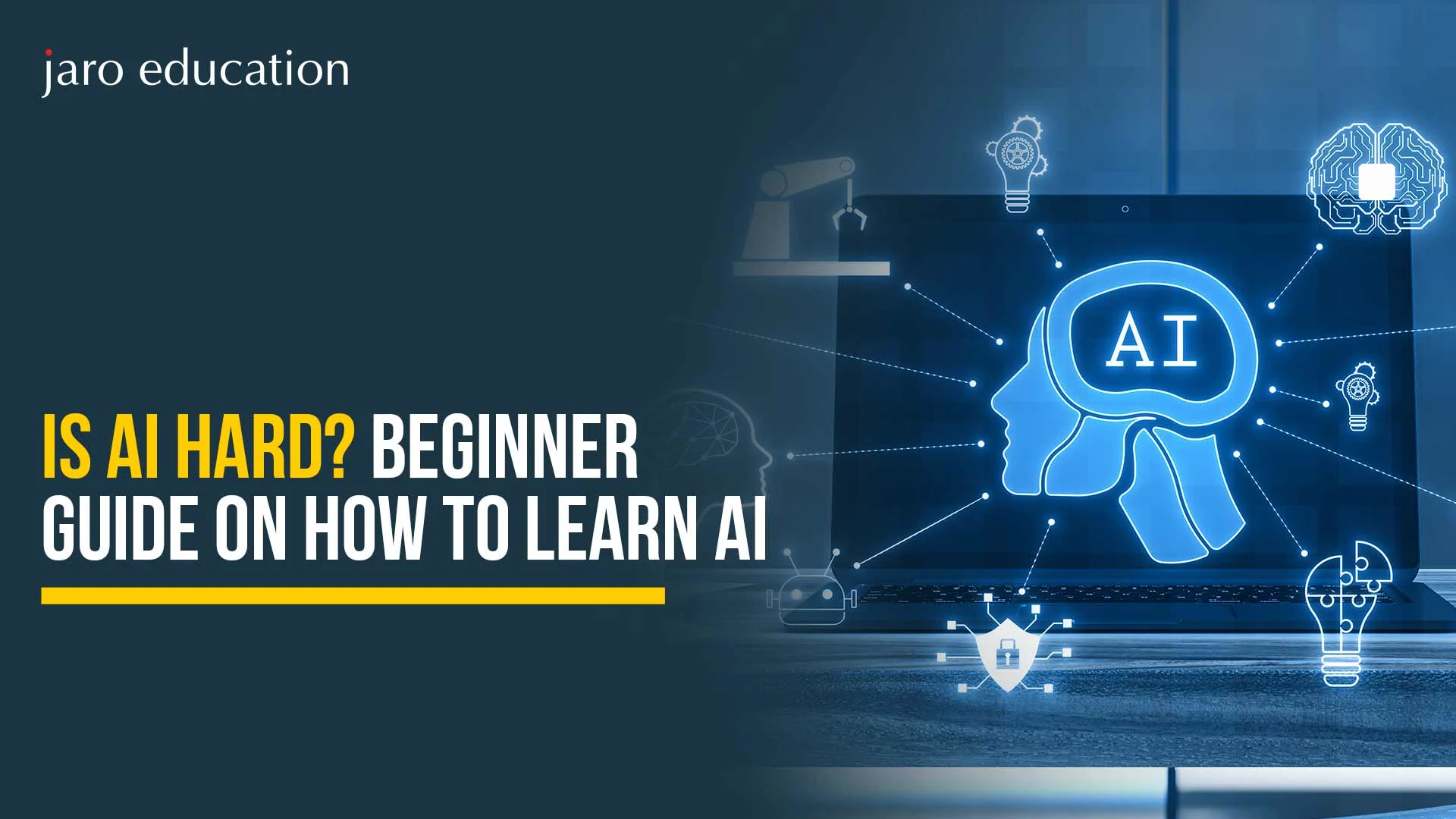
Is AI Hard? Beginner Guide on How to Learn AI
Most people asking how to learn AI aren’t short on curiosity; they’re overwhelmed by where to begin. If you are one of those who’ve ever searched how to learn AI from scratch and walked away more confused than before, this guide is for you. Because 2025 is not about chasing trends. It’s about building real skills, at your pace, on your terms.
Table Of Content
Why Everyone’s Talking About AI
How to Learn AI From Scratch - A Beginner’s Roadmap
What to Avoid When Learning AI
How to Build Your First AI Project
Jaro Education: Your How to Learn AI Journey Partner
Conclusion
Frequently Asked Questions
Why Everyone’s Talking About AI
How to Learn AI From Scratch - A Beginner’s Roadmap

What to Avoid When Learning AI
How to Build Your First AI Project

If you’re still wondering how to learn AI from scratch, here’s a simple first step: solve a problem you actually care about.
AI for beginner use cases doesn’t mean “toy” problems. It means relatable ones. Something from your job, your hobby, or your daily life.
Here’s how to structure your first AI project:
- Problem: What are you solving? Keep it small and clear.
- Data: Where will it come from? Use open datasets (like Kaggle, UCI ML repo).
- Tools: Python, Jupyter Notebooks, and libraries like scikit-learn or FastAI.
- Evaluation: How do you know if it’s working? Learn about accuracy, precision, and F1-score.
- Iteration: Rinse, debug, repeat.
Tip: Don’t obsess over accuracy. The objective in your how to learn AI should be to focus on understanding how your data flows through the model.
Jaro Education: Your How to Learn AI Journey Partner
Conclusion
If you’re still wondering how to learn AI in a way that’s practical, future-proof, and career-focused, the answer lies in choosing intentional, guided learning paths. And that’s exactly what Jaro Education offers: industry-vetted programs, India’s top academic partnerships, and outcomes that genuinely unlock leadership in the AI domain.
Your answer to how to learn AI in 2025 ends with Jaro. Visit our website to learn more!
Frequently Asked Questions
Start with foundational concepts like Python, statistics, and machine learning via structured, beginner-friendly courses designed specifically for people exploring how to learn AI for the first time.
Many platforms, including Jaro Education, offer guided programs that focus on how to learn AI for beginners with no coding experience by building skills gradually through visuals, case studies, and intuitive tools.
Instead of jumping between YouTube and blogs, choose structured programs like IIT-certified ones via Jaro, which help you understand how to learn AI through a professionally curated roadmap, not random rabbit holes.
For most learners, understanding how to learn AI effectively takes around 6–8 months with consistent effort, especially when following a curriculum that includes hands-on projects and expert mentorship.
Courses like the Advanced Certificate from IITM Pravartak or the PG Certificate in Applied Data Science from IIT Roorkee focus on applied learning, which is critical when figuring out how to learn AI in a business-relevant way.

